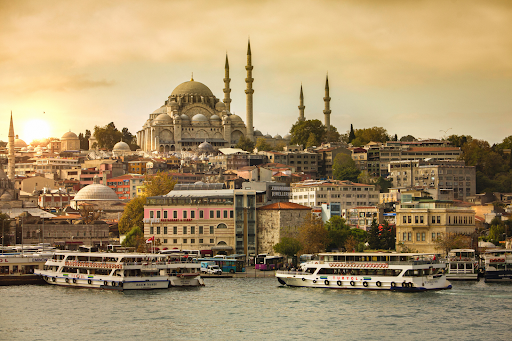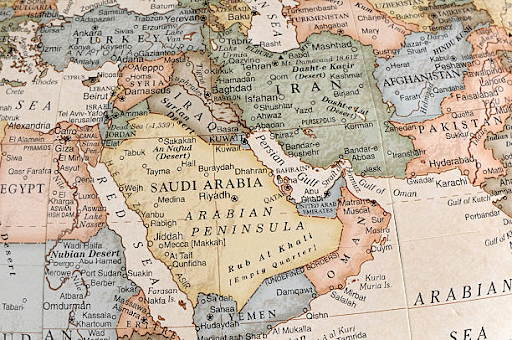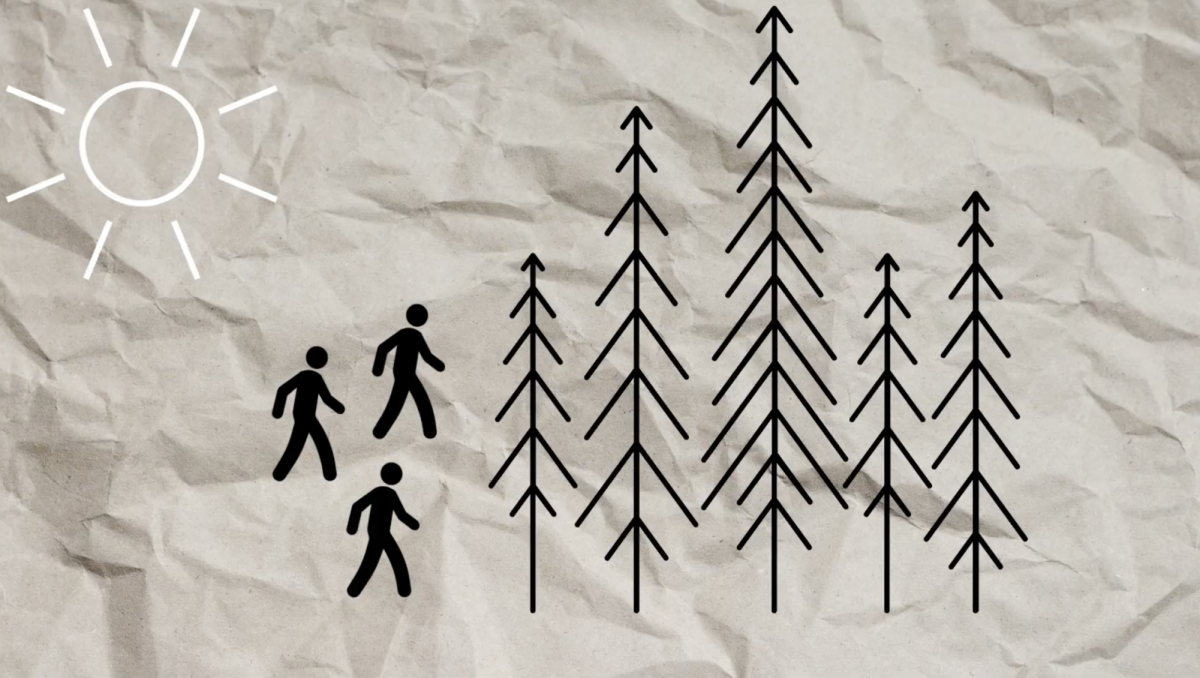
Introduction:
What is happening in the Middle East as of right now? Considering 81% of Americans can’t identify this part of the world on the map, you might even ask yourself where is the Middle East? Turning on the news you might get various news stories about modern conflict in the Middle East. What is true? What is false? Let’s unravel the timeline of the Middle East to get a better idea of the current situation in the Middle East.
1517-1918:
The birth of the Ottoman Empire started in 1299 by Osman Gazi with the common goal of spreading the religious ideas of Islam throughout foreign lands. Between 1516 and 1517 they conquered the Arab provinces. In their golden age from 1520 to 1566 their wealth, power, and stability reached parts of Africa and the Indus Valley. Ottoman Law was based on Shariah Law; an Islamic Law with a combination of edicts from the Sultan who was the absolute ruler of the land. In the 1700s and 1800s came the power of Western Powers like Great Britain, France, and Russia who interrupted the affairs of the Ottoman Empire and parts of Egypt. With the empire siding with Germany and Austria-Hungary, and with an Allied Victory, the once-called Ottoman Empire was divided into colonies between Great Britain and France.
1869:
November 17th, 1869 marked the completion of the world’s biggest economic waterway, also known as the Suez Canal. Along the Red Sea, it gives Europeans and various other countries better trade access points. France built it using Egyptian workers and it took 10 years to complete. The French government sold the canal to the British and held control over the canal for 84 years. Today the Egyptian government controls the strip of land. In addition, 1% of global trade passes through this 120-mile narrow channel.
1908:
Oil was discovered in Persia by William Knox D’Arcy after 7 years of getting drilling rights from the Persian Government. He created a partnership with Burmah Oil to form the Anglo-Persian Oil Company in 1090. By 1917, the British Government owned 51% of the oil trade within the Middle East and became the greatest influential power in the region. As World War I emerged, Great Britain used the companies’ oil reserves for their war in Europe.
1920-1926:
Iraqi women fought for equal rights and wanted to be recognized as full citizens. Many women in the region wanted to wear a veil in public and have employment and educational rights. Arabs in Iraq rebelled against British rule in the region and the Great Iraqi Revolution began. With the conclusion of World War One, the sultan signed the Sevres Treaty giving Greece their territorial claims back. Mustafa Kemal, a former Ottoman Empire army officer, denounced the claims of the sultan and led an army to recapture the land as part of the Turkish State. On July 24th,1922, the League Of Nations issued a mandate to Great Britain and France to establish a national home for the Jewish people in Palestine. Howard Carter discovered and opened King Tut’s tomb after a decade-long search. King Tut, also known as Tutankuhaman, ruled ancient Egypt 3,000 years ago. The year 1923 came with the great discovery of oil in Iraq. The nation produced 80,000 barrels a day and made oil pipelines to Lebanon and Palestine. On May 15, 1923, Great Britain finally recognized Transjordan, which was divided into 3 local administrative districts governed by 3 British advisors. Full leadership was given to Emir Abdullah. Mustafa Kemal becomes the first elected president of the newly established Republic Of Turkey.
1930’s:
The leader of Iran; Shah Pahlavi bans traditional clothing and pushes Iranian men, women, and children to wear “Western” clothes. Many indeed passed this law and many wanted reform to restore the Iranian Identity. Oil exploration begins offshore of what is known as the United Arab Emirates. In 1934 protests plagued the Turkish government as Turkish women fought for the right to vote, and soon Turkey became the first country to give voting rights in the Middle East. In 1936, Jewish migration and land acquisition reached its peak. In April of 1936, there was an Arab attack on a Jewish bus that escalated into a major Palestinian conflict. The revolt lasted until 1939. In 1938 came the discovery of oil within the Kingdom of Saudi Arabia. The U.S. Government & Saudi Government created a cool oil company called Aramco but full ownership was given to Saudi Arabia by 1980.
1939-1945:
World War II broke out as the Allied powers; Britain, France, Australia, New Zealand, Soviet Union, and the United States fought against the Axis powers; Germany, Italy, and Japan. After six years of long and constant fighting, World War Two ends with an Allied victory. An estimated 15 million military personnel perished with an additional 38 million civilian deaths throughout those six years.
1950s:
With U.S. efforts to keep Jerusalem as an international zone, Israel claims Jerusalem as its capital. East Jerusalem was controlled by Jordan until June 1967. Iranian Prime Minister Ali Razmara is strongly against nationalizing Iran’s oil industry and within days is assassinated by a member of the Fadayan-e-Islam terrorist group. Mohammed Mossadeq becomes the new prime minister of Iran. On December 24, 1951, Libya declared independence under King Idris. With the result of the United Nations Council Italy lost control in the North African nation after 20+ years of control. In February of 1952, Turkey became a NATO member and millions of Turkish citizens celebrated this event as modernization into the Western world. From August 15th-19th a U.S.-backed coup removed Mossadeq from power. Fazlollah Zahedi, a military leader, becomes prime minister of Iran. Sudan also achieved independence from Great Britain in 1953. In 1954 Britain under diplomatic ties left Egypt and its control of the Suez Canal. Later in 1956, the Egyptian Government nationalized the Suez Canal as it enforced toll prices and became a big revenue stream as it makes up 2% of Egypt’s GDP.
1960’s:
The (OPEC) organization was founded. Iran, Iraq, Saudi Arabia, Kuwait, and Venezuela all formed a group to tap into international oil markets to coordinate oil policies and secure fair oil prices for consumer nations. 1962 brought the start of an ongoing civil war in Yemen after army officers overthrew Muhammad al-Bahr. The republicans in the region are backed up by Egypt and the Soviet Union while Imam supporters are backed by Saudi Arabia and Great Britain. In the geo-political sector, conflict brewed as countries shared fresh water on the banks of the Jordan River. The Jordan River limited resources of freshwater in the region and water rights sparked vast conflict in the region. In 1964, Israel’s National Weather Water Carrier System, consisting of various pipelines and tunnels, started diverting water from the basin in another direction. This diversion led to the Arab Summit of 1964 in efforts to divert water flow into Syria and Jordan and provide fresh water to Israel. From 1965-1967, the Israeli government attacked construction sites regarding water issues in the region and sparked a six-day war in June 1967.
1970’s:
Golda Meir, a Millwakee-raised American, migrated to Palestine in 1921. After holding consistent military positions in Israel’s first government in 1948 as a foreign minister, and being an ambassador for ten years, he became prime minister. With the U.S. Government giving support to Israel in the Yom Kippur War Saudi Arabia participated in the 1973 Arab oil boycott of Western nations including the United States. The price of oil per barrel quadrupled in price, increasing Saudi Arabia’s political and economic influence in the region. Saddam Hussein became President of Iraq on July 16th, 1979.
1980s:
On September 22, 1980, Iraq invaded Iran due to long-lasting border skirmishes and disputes over the key waterway called Shatt Arab Waterway. Military personnel seized hundreds of miles and took control of Iran’s oil by invading key infrastructures to support Iran’s oil exports. In Addition, the Iranian economy somewhat relies on oil revenues for their economic flourishment. On June 6th, 1982 Israel invaded Lebanon cutting off necessities like food and water from the Lebanese capital of Beruit. The given reason for Israel’s invasion was to drive out Yasser Arafat’s Palestine Liberation Organization after it had been using Israel for anti-Israeli operations. In response, the U.S. Government sends marines to withdraw and to ensure a peaceful withdrawal of the PLO. While in Turkey Kurdish terrorists from the Kurdistan Workers Party led clashes killing 20,000-40,000 people from a range of Turkish troops and Kurdish militants and civilians. In 1989 Osama Bin Laden formed the extremist terrorist group called “al Qaeda”.
1990s:
On April 9th, 1994 Osama Bin Laden was stripped of his Saudi citizenship due to his reaction to overthrowing the regime of Saudi Arabia. In the same month, a bloody Civil war broke out in Yemen. In July of the same year, Yasser Arafat entered after living in Israel for 27 years. He spent 12 years running the Palestine Liberation Organization. On October 26th, 1994 the Jordanian government signed a peace treaty with Israel ending 46 years of official state of war. In 1995 the U.S. Government imposed big oil and trade sanctions against Iran as they claimed the Iranian government was “sponsoring terrorism”. In November of 1995, Yitzhak Rabin was assassinated by Yigal Amir who was an Orthodox Jew who was an oppositionist of Israel withdrawing from the West Bank. Shimon Peres becomes the new prime minister of Israel. In April and September of 1996, U.S. Congress passed the Antiterrorism and Effective Penalty. Act and the Illegal Immigration Reform and Immigrant Responsibility Act aimed at Arabs and Americans of Middle Eastern descent.
2000s:
In Afghanistan, the Taliban grasped control as they restricted women’s role in society. Women were required to wear a traditional burqa that covered the whole body and left a small mesh over their eyes. They were also disbanded from the workforce. Women had to paint their windows black if the public could see them. The USS Cole is attacked in the Yemeni harbor. 17 American sailors were killed and it was the deadliest attack on the U.S. military since 1996. In April 2002, Israel launched military raids against Palestinians and suspected terrorists in the West Bank.
Current:
The world’s eyes are set on Israel and the conflict in Gaza. On October 7th, 2023 Hammas fired 5,000 military rockets into Israel. From then to today 31,000 Israelis and Palestinians have perished. 14.5 billion dollars of military aid has been given to Israel. The future of Israel & Gaza is long to be found as nations convene in peace talks. Will there be a Palestinian state? This conflict goes to show how borders drawn years ago can impact the geopolitics of today.
Interview With Mr. Siegfried:
Why do you think there is so much destabilization in the Middle East today?
It’s difficult to say exactly. It’s a place that for one 3 great religions have held that region holy. Particularly the areas near Jerusalem and Mecca. There has been a long history of people vying for control. Also wanted to be there and there were plenty of times when it was peaceful. I also think the Middle East was a middle ground between great powers for the last 200 years. With WWI and WWII you have great world powers on earth fighting in that theater. Also, they then made decisions about what was going to happen after the wars there that weren’t necessarily in the best interest of the people who lived there and controlled that land.
What would you do if you were in charge of drawing up the borders of the Middle East?
Well, I would not have done it that way. These guys just took a map of some club in London and drew some lines. There was more to it than that but you want the people who live in a region to self-determine themselves. That’s what you want. Use democracy to create a group of people where they want to live and work together and then have them decide what their nation will be. To have arbitrary people from outside just carve it up and set it up for failure. It’s not the only thing that sets them up for failure. It’s self-determination it has to be.
Do you think Western countries and their craving for oil led to the destabilization of the Middle East?
I think it contributed to it. Oil is incredibly important to the world economy. Counties make decisions based on that importance that put aside more noble decisions like self-determination. For example, if Saudi Arabia did something that we didn’t like but they have all that oil so we can’t do that. There is always something in play. I don’t think it caused the destabilization but I think it’s done both. It’s contributed to great wealth and opportunity for the people who live there to profit from their natural resources but it has also allowed things to go south and go poorly. It could be corruption or non-democratic forces.
There seems to be a pattern where Western countries go into a nation like Afghanistan and then pull out. Do you think Western intervention is helping or worsening the situation in the Middle East?
I think there’s a chance for both things to happen. There was the war in Iraq that has its controversy. Though I know that the United States dollars, technology, and education have offered an opportunity to make things better. In a larger context of an invading force the opposition of Iran, it’s really hard to get that done. There are people on the ground who want to help and do the right thing. They are peaceful democratic people. Americans. The larger content involves a lot of bad blood between people. Take the Shia and Sunni for example. That’s old. We are not going to build a school and fix it. So we leave. It’s a mix.
Some might say that the Middle East is the biggest geopolitical area in the world with the Red Sea and the Suez Canal, where do you think the future of this part of the world lies?
I don’t know. I need a crystal ball for that one. I mean with the latest with Gaza and Hamas it’s going to set it back decades. I don’t think in the short term there is going to be a solution with Palestinians and Israelis. The larger issue of Iran and it seems they would like to be the superpower. The Saudis are in the way. I would have the brush up on the other political contingencies right now. These places want to have power and control and they don’t want the “West” in the region with power and control. Until that is resolved I don’t see a lasting peace in the Middle East.




















Julia • May 23, 2024 at 7:54 am
This is a very informative article and it gives insight into the history of this complex region of the world. The interview is also a great addition.